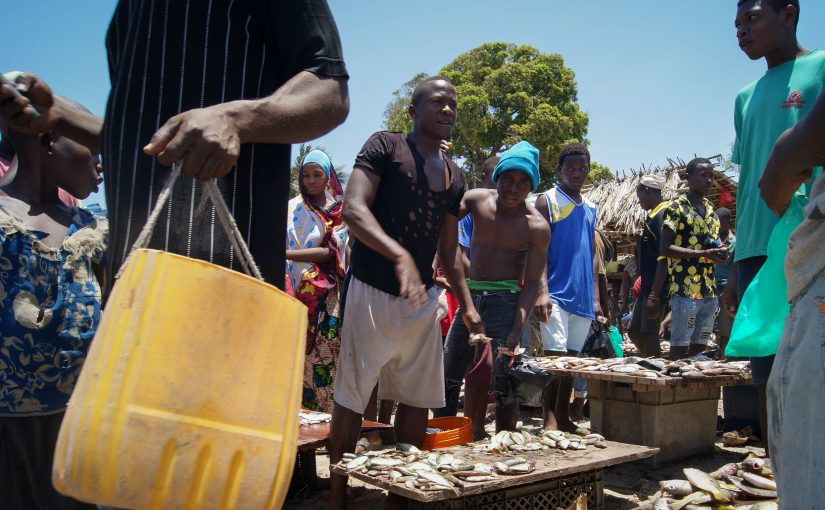Mozambique: First case of mpox diagnosed in Cabo Delgado
Two million Mozambicans are facing food insecurity – government

FILE - For illustration purposes only. [File photo: Lusa]
Two million Mozambicans are facing food insecurity, of whom 148,000 require “urgent humanitarian assistance”, the government stated this Tuesday.
This information was released by Council of Ministers spokesperson Inocêncio Impissa, with preliminary data from the food security assessment in the post-rainy season period, conducted in March and April among 11 million citizens in 66 districts.
“Of the 11 million citizens reached, 5.2 million have satisfactory levels of food security, four million are able to feed themselves, and two million Mozambicans are experiencing food insecurity,” Impissa said.
He added that at least 148,000 people are in an emergency situation, “requiring urgent humanitarian assistance”.
“The government, through the National Institute for Disaster Risk Management and Reduction (INGD) and partners, is working to meet the needs of these households, and support in terms of agricultural inputs and tools is also underway for the 2025-26 agricultural season,” Impissa added.
On August 7, Mozambican authorities estimated that approximately 2.3 million Mozambicans could face acute food insecurity by the end of this year, due to the drought associated with the El Niño weather phenomenon.
“In Mozambique, […] it is estimated that approximately 2.3 million people could face acute food insecurity by the end of the 2024/2025 season,” said Cândido Ampute, the southern regional director of the National Institute for Disaster Risk Management and Reduction (INGD).
According to Ampute, El Niño had a significant impact on agriculture and “consequently on food insecurity”, particularly in central parts of Mozambique.
Mozambique is considered one of the countries most severely affected by global climate change, experiencing cyclical floods and tropical cyclones during the rainy season, which runs from October to April, as well as prolonged periods of severe drought.
Between December and March alone, the country was hit by three cyclones, which, in addition to destroying thousands of homes and infrastructure, caused hundreds of deaths in the north and centre of the country.
These extreme events caused at least 1,016 deaths in Mozambique between 2019 and 2023, affecting approximately 4.9 million people, according to data from the National Institute of Statistics.
In February, the Integrated Food Security Phase Classification (IPC) report also estimated that approximately 3.3 million people would face food insecurity due to the impacts of climate shocks and the armed insurgency in Mozambique.
The United Nations also estimated at the time that food insecurity worsened by El Niño had reached “unprecedented levels” in Mozambique, threatening nearly five million people, amid a drought and a lack of international funding for on-the-ground support.
According to a report by the United Nations Office for the Coordination of Humanitarian Affairs (OCHA), the findings stem from an analysis of agricultural activity and food insecurity, indicating that it “has reached unprecedented levels in Mozambique,” with a total of 4,890,232 people threatened by food insecurity by the end of the campaign, which concluded in March.
OCHA launched an appeal in 2024 for US$222 million (€213 million) in international support to combat the effects of the drought in Mozambique, but acknowledges that it faces “a significant funding gap,” having raised only US$28.7 million (€27.5 million), equivalent to 13% of the needs identified.












Leave a Reply
Be the First to Comment!
You must be logged in to post a comment.
You must be logged in to post a comment.